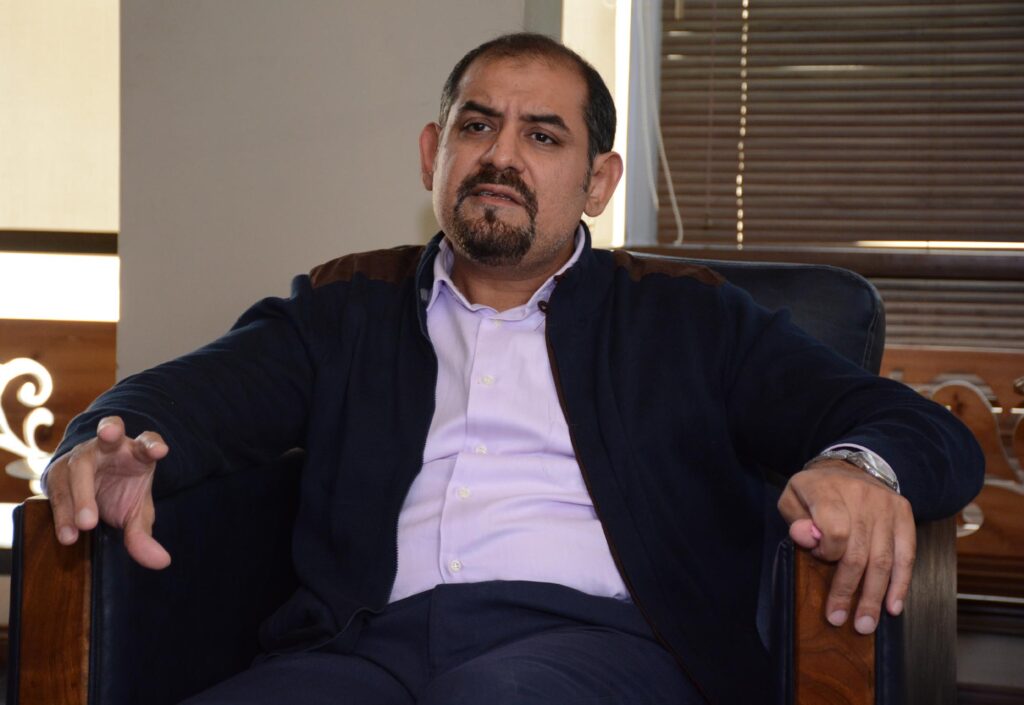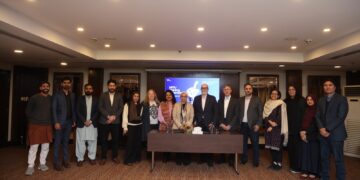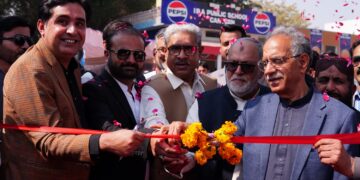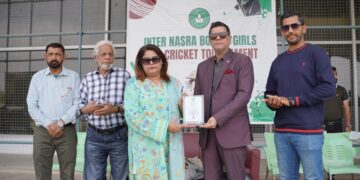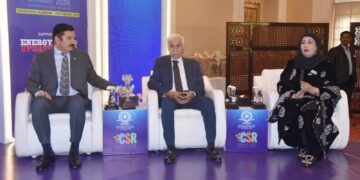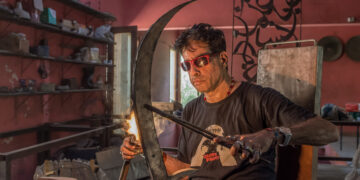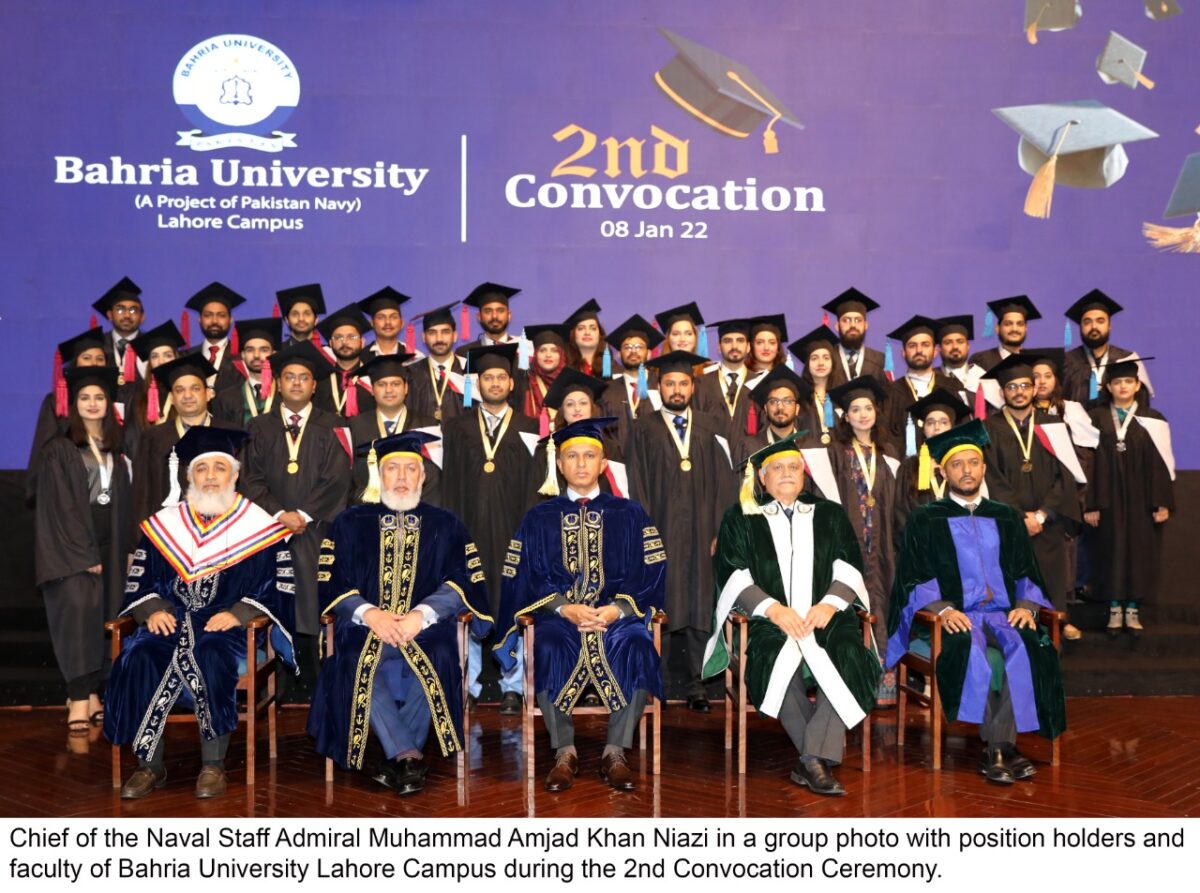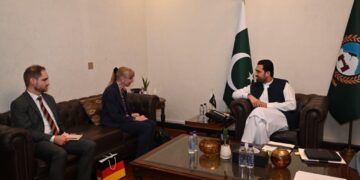Muhammad Fawad Sheikh is the Group Director of JF Group of Companies. JF Carpet, JF Homes, JF Builders, JF Hotel One, JF Industries provide services to customers under the JF Group of Companies. In addition to home appliances, construction, home decoration, and services in the hotel industry. In 2019, Inaugurated Hotel One franchises in Lahore. We have extensive experience in interior design with a talented, experienced team carrying out the work through modern technology. We import furniture from other countries and give it to our customers, but in Pakistan people are different from other countries. Therefore, we decided to manufacture the entire furniture in Pakistan, after which we set up a factory to manufacture the furniture according to International quality standards. Fawad Sheikh is involved in the construction sector for the past 15 years. His companies completed commercial and residential projects in Karachi, Lahore, and Islamabad. Fawad Sheikh has a special discussion on the current economic situation of the country.
Q: You are also involved in construction. What problems do you face?
Fawad Sheikh: The main issue is land acquisition. An allotment is easy in certain areas but there are allotment problems in many areas. The performance of the government department as SBCA is not good. My personal experience with a government department, create more problems, and builders face a lot of problems. Government departments provide a lot of facilities to illegal builders. The majority of builders work outside Pakistan. Construction business is going on all over the world. Local governments are very supportive of Builders in foreign countries. They do not face any problem there but in Pakistan, it is the other way around. LDA has stricter rules than Sindh Building Control Authority (SBCA) and DHA. LDA is not allowed to break the law. The performance of the LDA is much better now than in the past. When we were doing our commercial project there, it seemed that we were doing a project, not in Pakistan but Dubai or any other country. The fire protection policy in the project has to be strictly followed. There is no fire protection system in Karachi. Unfortunately, government departments do not enforce the law.


Q: In terms of the construction sector, is there more facility in Punjab or Sindh?
Fawad Sheikh: Sindh province is weak in law enforcement but it is not that these weaknesses cannot be removed. If there is a good administrator or good leadership, he can improve the system in a short time as there are rules. Sorry, Pakistan is a welfare state. There is a lot to take but nothing to give to the people. Inflation does not matter as much as it has in the last two years and some industries have established their monopoly because the next day their new price comes and the loss is borne only by the consumers. The Pakistani system on the one hand is encouraging a 5% monopoly industry and on the other hand, is unwilling to talk to 95% of the people.
Q: Are the current conditions conducive to the construction sector?
Fawad Sheikh: I think that the current situation is not conducive for the construction sector. The reason is that construction companies in Karachi are not allowed to go ahead. High-rise buildings are being demolished in Karachi; a building in Islamabad has become illegal but has been legalized. The CA becomes indifferent but does not take immediate legal action against them unless the public is harmed.
Q: Are you bringing a new project, if not, what is the reason?
Fawad Sheikh: In current situation How to bring a project. If you look, Karachi is getting poorer. The financial situation that was good 20 years ago is no more. Karachi is a commercial hub but not now. Even now things are not going well.
Q: Will the one-window operation enables the construction sector to grow faster?
Fawad Sheikh: This one window operation will be in the books. It does not seem to be related to reality. We need to take serious steps for development in other fields including construction. My suggestion is that in a country like Pakistan, committees should be formed by combining private and government institutions and these committees should consist of people who are the stakeholders of the area concerned so that business or any sector can develop there. But the only way to strengthen and fix it is to fix your management. We have to provide health facilities to the people. If the world collects GST tax from the people then it also spends on the people but nothing is spent on the people here. Pakistan is taxed more than Canada, Europe, and developed countries are being taxed here but the people are not getting anything in Pakistan. The infrastructure of government hospitals has to be improved up to the lower class. The one who works earns with honor and goes home with honor. The problems of the working class are such that their minds are not on work but the hospital. Despite being a welfare state, nothing is being given to the people. The kind of speeches the government hears, can’t it get its administration to provide relief to the people? The working class is not being facilitated but their problems are being aggravated.
Q: Are you satisfied with the government’s tax policy?
Fawad Sheikh: Government tax policy is not balanced. The FBR is given a target, they don’t care what the outcome will be, they just have to meet the target and the FBR is instructed to send thousands of challans. Because they think people don’t pay taxes. Tell me, in what country is there so much blackmailing? I am against the condition that the FBR post points of sale. What is the point of 17% GST in Pakistan? The government should give relief to manufacturers and importers. The tax policy at every stage will not last long.
Q: What is the attitude of the FBR towards the business community?
Fawad Sheikh: FBR also annoys. They also believe that abuse is taking place but the target given to them can only be achieved at gunpoint. Not working on a long-term project there is anything wrong with raising revenue but long-term planning is required.
Q: What would be your comment on the economic situation of the country?
Fawad Sheikh: The rich class in the country is very happy. The rich class is making money somewhere. Almost the entire industry has established its monopoly which has caused prices to skyrocket.
Q: How do you see the decline in the value of the rupee?
Fawad Sheikh: The continuous devaluation of the rupee is a big problem for Pakistan. Our GDP is very weak. The dollar affects everything in Pakistan. The raw material is available for export. The government gives short-term relief to exporters but cannot maintain it. When the GDP is strong, the effect of rupee depreciation will not be so great. There is no space for factories here. Even if there is space for factories, electricity, gas, sewerage, drainage and other facilities are not available. That is why the economic condition of the country is deteriorating and the value of the rupee is also falling.
Q: What are FPCCI and KCCI doing for business facilities?
Fawad Sheikh: FPCCI and KCCI have their limitations. The government is not able to do what it wants. Everyone is compelled. The government listens to them, but the next day they do not remember what to do. Rulers in other countries play a role for their people but in Pakistan, no one is playing or wanting to play such a role.
Q: What is your proposal to reduce poverty?
Fawad Sheikh: In the last three years, we have gone below 30 countries. In 2018, Pakistan was number 106 and today it is number 138 or 142, Pakistan is constantly going below poverty. Underdeveloped countries are better than us but our economic condition is constantly declining. I think in 20 years, our country will go below 200 countries in the economy. The reason is that the people have a tax burden that’s why Pakistan will go below the poverty level. Therefore, I think that the government has to implement the concept of the welfare state, levy taxes but not only pay salaries person but also provide basic facilities, strengthen the infrastructure and create facilities for the common man along with the business community, to make them feel safe.






